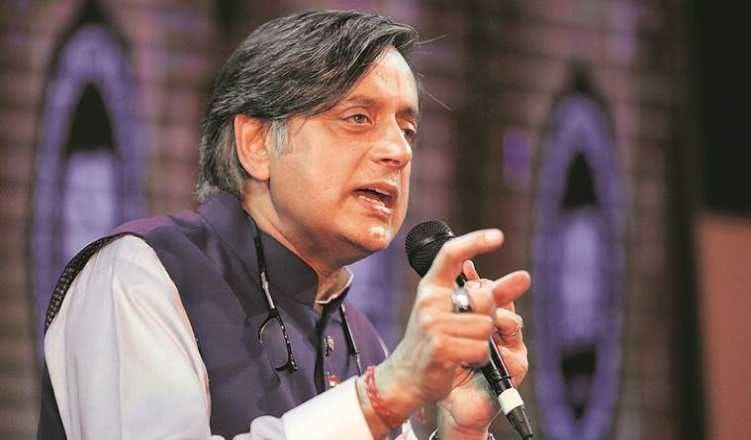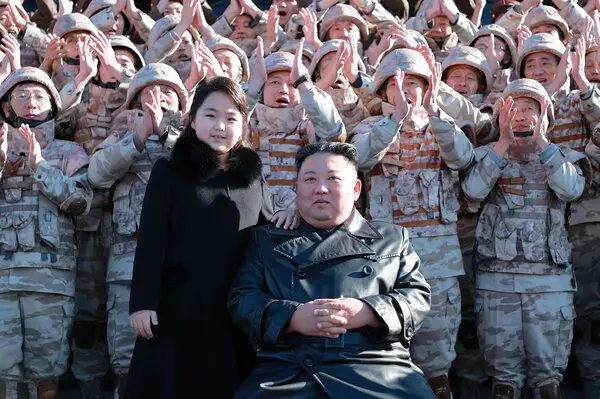Time For Shashi To Adorn The Saffron? Will It Pave The ‘Green’ Development For Kerala?

There is no better adjective to describe the tale of Kerala’s growth other than “paradoxical”. During its constitutional inception in 1957, in comparison to the 13 other states of the Indian union back then, Kerala had a unique and promising start. The first Government of Kerala was also India’s first Communist Government. The ministers were party members who were either in prison or in hiding prior to the elections.
The promising ministry undertook bold measures to pave the foundation of Kerala. Unfortunately, one of those measures, the Educational Reform Bill, which was a very rational bill to regulate appointments in Government aided educational institutions led to violent protests and finally the dissolution of the Government by the Center. Thus, the Kerala State Government became the first victim of Article 356 of the Indian Constitution. Reforms however continued and the state had most successfully implemented the Land reforms bill in the 1970s. However, that was the beginning of the contradictions and ironies in Kerala that has led us to the Kerala of today.
Kerala has consistently been ruled by the Congress and Communist led fronts alternating almost perfectly every 5 years. Despite this predictable and periodic swapping of chairs, the underlying policies and dogma always remained consistent bringing us to where we are today. To illustrate, let us look at below:
- A highly unionised labour force supported by the Left and Right fronts that has shut down several industries in the state exist even today.
- In parallel, there exists a very lenient attitude towards the land mafia, sand mafia, quarry mafia, liquor mafia, etc. But it is also important to point out that there have been brief glimpses of wilful governance, but time has always managed to eclipse it. A good example would be the Kerala Anti-Social Activities (Prevention) Act of 2007, better known by its colloquial term, Goonda Act.
- A green state defined and exhaustively called as God’s Own Country that destroys its green blessing to the extent that nature has begun reacting i.e. the devastating floods of 2018 and 2019.
- A duality of a highly lethargic and unionised workforce within the state but the most hardworking, respected and leading workforce globally.
- A land blessed with fertility and climatic conditions conducive to agriculture, and yet hailed as a consumer state that thrives on income from NRIs and supplies from neighbouring states.
Coming to the trend in the last 9 years and analysing the UDF Government and the LDF Government, we shall observe the following:
- Complete similarity to the extent of near perfect duplication in policies and the manner of handling crimes, environmental policies, corruption, revenue expenditure, etc.
- The stark aberration that the role of the “opposition party” is not played by the actual opposition party, but the prime-time news debate anchors who have one of the most aware audiences, perhaps in the world.
- BJP continues to fail to convert goodwill and national growth to seats in Kerala.
Having established the fact that practically the Kerala governance model is unchanged, it has led to a paradoxical model that is no longer sustainable; the need for change can perhaps only come from an alternative to the UDF and the LDF.
Why BJP?
The answer might be simple. No other party has the potential to win an election to the extent of forming a Government single-handedly. It is important to stress that we speak of potential in terms of ground support and money.
“Shashi” is a term that is unanimously abused across Kerala as a synonym for nincompoop. But perhaps, this name will have an optimistic redefinition today in the guise of a saffron habiliment.
Would Shashi Tharoor join with the BJP and what if he does?
Why Shashi?
Time and again, Kerala’s BJP leadership has demonstrated their ineptitude to convert momentum to actual votes and their desperate need for a “face”. From another perspective, Shashi Tharoor comes across as a statesman, a leader with enviable charisma except for the Sunanda Pushkar episode. However, just like the rest of India, the Kerala democracy has repeatedly demonstrated the phenomenon where people have short term memory and the leaders always enjoy the benefit of doubt.
But the real question is: Will it work for the benefit of Kerala?
It may or may not, but it is always better to change and fail, rather than to wait for an impending doom.
What will happen otherwise?
Pinarayi => Ramesh => Kodiyeri => Oomen Chandy => Kodiyeri etcetera and etcetera with the same continuing policies, with the same will and effect…
In fact, on behalf of Pravasi Express, I had asked Dr. Tharoor, the exact same question last year in a dialogue, if he was willing to join sides with the BJP…
Watch the full interview here:




